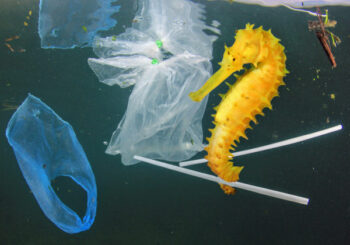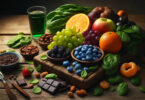By John Patterson
Staff Writer for Wake Up World
In a new study, the University of Portsmouth researchers have uncovered alarming consequences of plastic pollution on marine life. Unlike previous studies that focused on the visible impact of plastic waste, this research delved into the chemicals within everyday plastics, revealing how they affect the reproductive capabilities of marine amphipods, also known as shrimp-like creatures.
[pro_ad_display_adzone id=”110028″]
Disrupting Mating Behavior
Exposure to toxic plastic additives significantly changes the mating behavior of marine creatures. Professor Alex Ford from the Institute of Marine Sciences emphasizes the gravity of the findings, stating, “This unsuccessful mating behavior has serious repercussions, not only for the species but potentially for the entire population.”
When exposed to plastic chemicals, the creatures exhibit disrupted mating behavior. They break apart from their mates and take much longer to repair, if at all. This alteration poses a threat not just to individuals but to the entire ecosystem, given their crucial role in the food chain.
Identifying the Culprit Chemicals
Researchers focused on four widely used plastic chemicals: phthalates (DEHP and DBP), triphenyl phosphate (TPHP), and N-butyl benzenesulfonamide (NBBS). These additives are commonly found in medical supplies, food packaging, toys, flame retardants, and various household products.
Bidemi Green-Ojo, lead author and PhD Researcher in Environmental Toxicology, explains, “We selected these four additives due to the suspected danger to human health. Our aim was to assess their effects on aquatic mating behavior.”
Impact on Reproduction
Pairs of marine amphipods exposed to each chemical showed alarming results over four days. All plastic additives demonstrated the ability to reduce the overall percentage of animals that formed pairs. Even for those that did form pairs, the time taken for contact and re-pairing was significantly extended.
Two chemicals exhibited a concentration-dependent effect on creatures’ sperm, resulting in a 60% decline in sperm count for those exposed to elevated levels.
Urgent Call for Environmental Awareness
Professor Ford emphasizes the need to comprehend more about these chemicals and their behavioral impacts, stating, “Studies like this offer a different perspective on potential damage caused by specific pollutants.” Bidemi Green-Ojo echoes this sentiment, urging environmental agencies to prioritize behavioral data. Such studies provide a unique perspective on the damage caused by specific pollutants that conventional toxicity tests may overlook.
The Hidden Threats Unveiled
As the world grapples with pervasive plastic pollution, this research sheds light on the unseen threats posed by plastic chemicals. It calls for heightened environmental awareness and underscores the importance of understanding behavioral impacts to safeguard the delicate balance of marine ecosystems.
Plastic pollution extends beyond the visible, and it’s time for a collective awakening to protect the intricate web of life beneath the waves. This holistic approach ensures a comprehensive understanding of the issue at hand, fostering a more profound commitment to the preservation of our oceans.
The Need for Simplicity in Raising Awareness
To effectively convey the urgency of addressing plastic pollution, it is crucial to communicate in a way that resonates with a broader audience. Simplifying the message does not undermine its significance but rather ensures that more people can comprehend the gravity of the situation.
Understanding the impact of plastic chemicals on marine life is a critical step in promoting environmental consciousness. By acknowledging the threats these chemicals pose to reproductive behaviors, we can work towards solutions that protect our oceans and the diverse ecosystems they support.
Conclusion: A Call to Action
In conclusion, the research from the University of Portsmouth unravels the hidden threats of plastic chemicals to marine reproduction. It serves as a wake-up call, urging us to reevaluate our relationship with plastic and its far-reaching consequences.
With plastic additives affecting the very fabric of marine life, there is an immediate need for collective action. Environmental awareness, policy changes, and individual responsibility are paramount in steering our oceans away from the silent threat of plastic pollution. Let this be a rallying cry for a future where marine ecosystems thrive, free from the shackles of plastic-induced harm.
Reference:
- Bidemi Green-Ojo, Marina Tenório Botelho, Gisela de Aragão Umbuzeiro, Vicente Gomes, Mathew O. Parker, Lena Grinsted, Alex T. Ford. Evaluation of precopulatory pairing behaviour and male fertility in a marine amphipod exposed to plastic additives. Environmental Pollution, 2024; 341: 122946 DOI: 10.1016/j.envpol.2023.122946
About the author:
John Patterson is an avid writer and researcher who delves into the latest scientific research. With an insatiable curiosity, he translates complex concepts into accessible narratives, allowing readers to embark on a journey of discovery. Through his work, John bridges the gap between experts and the public, igniting curiosity and inspiring meaningful conversations about scientific breakthroughs.
[pro_ad_display_adzone id=”110027″]







